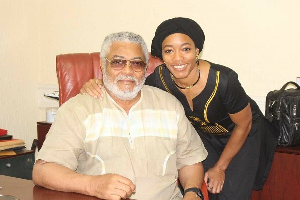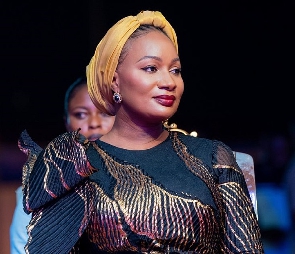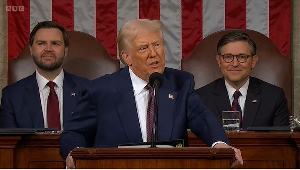A GNA feature by Francis Ameyibor
Senior Judicial figures and experienced election commissioners have for some years been working separately to enhance human rights observance and democratic practices around the world.
In the discussions it became apparent that there is no generally agreed and authoritative statement of principles to guide developments in the area of Electoral Justice, and that there was the need for these to be developed.
Electoral Justice is considered a broader concept than the holding of a technically correct poll; in particular, these rights include: Everyone has the right to take part in the government of their country, directly or through freely chosen representatives.
The realisation of Electoral Justice requires a set of institutions, practices, norms, mechanisms, practices and procedures that culminate in fair and open processes by which citizens choose those who are to govern them and to hold them to account – and this not simply on polling days but on a day-to-day basis. Accra Principles for Electoral Justice:
Recent launch of the Accra Principles for Electoral Justice provided another platform for Africa to demonstrate to the global community its readiness to adhere to the tenets of democracy and to open up its frontiers.
The Principles give people who believe their electoral rights have been violated, the ability to make a complaint, get a hearing, and receive adjudication within a reasonable time.
Launching the document in Accra Mrs Justice Theodora Wood, the Chief Justice, revealed that an important safeguard of election integrity depended on the effective resolution of electoral disputes in a fair and timely manner.
She therefore assured the nation that the Ghanaian Judicial System would collaboratively work with the Electoral Commission (EC) to have these global standards piloted in the country.
Mrs Justice Wood said the Ghanaian judiciary recognised the importance of electoral justice, which clearly cut across political, civil and electoral rights of citizens and would collaborate with other stakeholders to build on the foundations laid over the years.
She said in participatory democracy, elective officers had a limited lifespan and slow pace of adjudication of disputes had the potential of rendering the judicial remedies subsequently obtained by the successful party Pyrrhic victory.
“Failed justice stands the risk of ruining our collective efforts at promoting and sustaining peace in Ghana and turning the clock of national progress and development back,” the Chief Justice said.
The Ghanaian Chief Justice’s support for the Principles indicates acknowledgement of the judiciary that significantly electoral justice is a broader concept than one that only embraces the outcome of an election conducted in accordance with legal provisions as it goes beyond the letter of the law and addresses the integrity of the entire process.
According to Election Management Bodies (EMB) who assisted in the formulation of the Principles noted that: Electoral Justice not only resolves electoral disputes, but protects the political and electoral rights of citizens.
Thus Electoral Justice not only protects basic political rights, such as the right to vote, stand for election, the equal rights of men and women, freedom of association and affiliation, the right to security of the person, and the right to take part in the conduct of public affairs, but also the civil rights connected to these rights such as freedom of speech, freedom of association, the right of peaceful assembly, right to information, right to petition for redress.
Electoral Justice also recognises that things can sometimes go wrong in electoral processes, and that the manner in which these wrongs are redressed can determine the overall legitimacy of an electoral outcome and the level of trust in the electoral process.
The Chief Justice of Uganda, Mr Justice Ben Odoki, noted that elections were only a starting point for the attainment of a vibrant democracy, but that much more was required to realize good and accountable governance between polling dates.
He said: “Even though everyone has the right to take part in the government of their country and shall have an equal opportunity to become a candidate for election.
“The criteria for participation in government must be determined in accordance with national constitutions and laws and must not be inconsistent with the State’s international obligations”.
Documents available to the Ghana News Agency indicate that electoral justice translates the concept of government of the people, by the people, for the people into a practical reality for all the nations and peoples on Earth.
It ensures that power is deployed through democratic means rather than through the dominating disbursement of financial resources, undue influence, force or other illicit or democratically illegitimate means.
It is a form of organization of power that implies the existence of an independent and impartial mechanism for the proper functioning of the State.
Electoral Justice upholds the dignity of human beings as citizens and individuals as a proper control on the exercise of power. It requires full civic participation that gives full recognition of political, civil and social rights as opposed to the mere holding of elections at regular intervals.
Electoral Justice demands that core democratic values and principles be recognised and implemented in every corner of the world.
It permits new ideas to infuse the process of civil government over the course of time and through succeeding electoral cycles. It provides means for the just, peaceful and acceptable deployment of wealth and resources in society.
It encourages the resolution of disputes through the sharpening of debates and the reaching of a broadly acceptable accommodation of important differences and of conflicting claims in society. It is a precondition to the establishment of an acceptable polity, deserving of membership of, and the respect of, the international community.
Overall, the objective in achieving Electoral Justice is to create a democratic environment in which electoral outcomes are accepted by the electorate and the competing candidates as a reflection of their democratic aspirations and preferences duly expressed by the voters in polls following free, fair and credible campaigning.
Electoral Justice requires that there are institutions in place for ensuring that the procedures and decisions related to the electoral process are implemented. This may include the institutions such as the EMB, electoral tribunals or courts as well as the mainstream judicial process, or alternative processes such as conflict resolution processes.
Election Administrators with collaboration from judicial systems have set another pace for reducing electoral violence which has characterized elections in Africa.
The Association of African Election Authorities (AAEA), Open Society Foundation, UNDP and TIRI-Electoral Integrity Group need commendation.
Opinions of Tuesday, 20 September 2011
Columnist: GNA


















